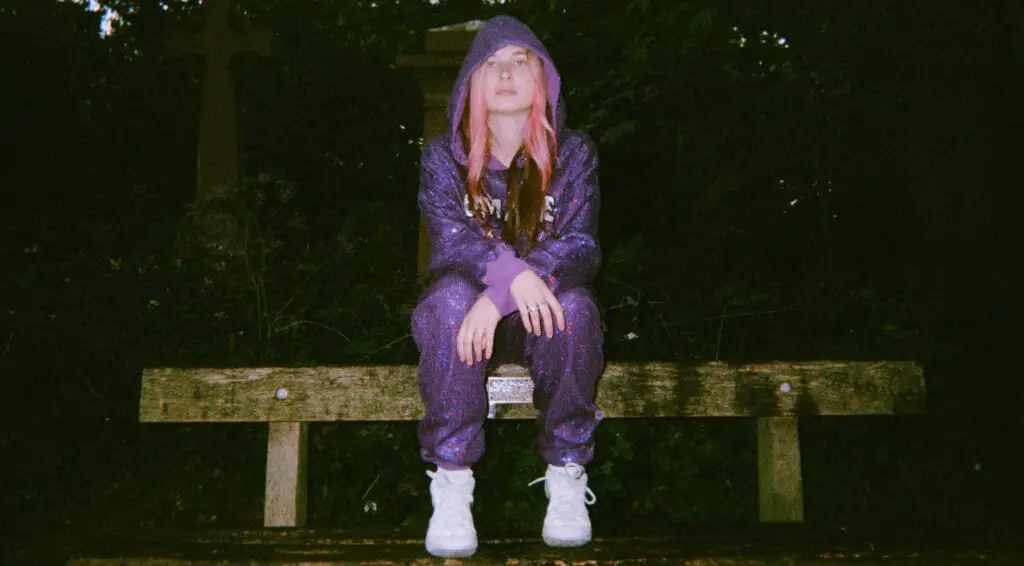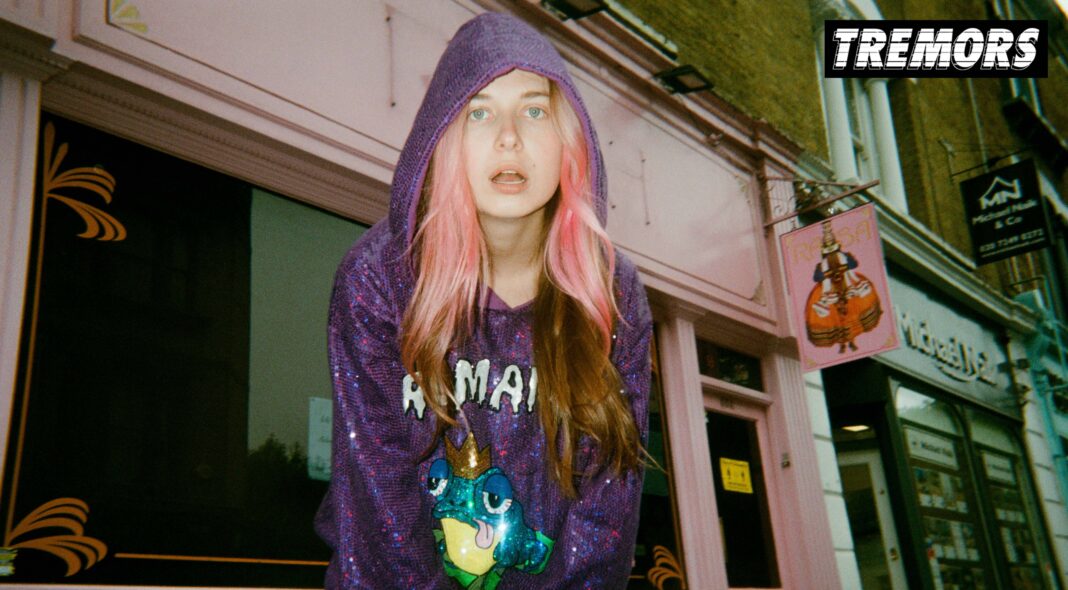When Bella Latham, aka Baby Queen, moved to west London as a wide-eyed, excitable 18-year-old, she was on a particular mission: to reshape the pop-sphere as we know it. Within a week of living there, she had settled in Fulham with her auntie and uncle, and had enrolled in a music course at a North London college to help kick start her career. So far, so good. But it wasn’t long before she threw herself in at the deep end; alone, she began to traverse the bustling pubs and the clubs of the city in an attempt to meet like-minded musicians and creatives, to little avail.
“I was totally unprepared for a city like London,” admits the 23-year-old singer-songwriter now, speaking over Zoom. “I had bright light syndrome, and I came here with all these ideas. I thought I was gonna arrive off the plane and Universal Records would be waiting on the other side for me with a contract! I came with the shit demo CD and everyone was like, ‘Who the fuck are you?’ My jaw was permanently dropped, I couldn’t believe what I was seeing around me and the people I was meeting – it was total sensory overload.”
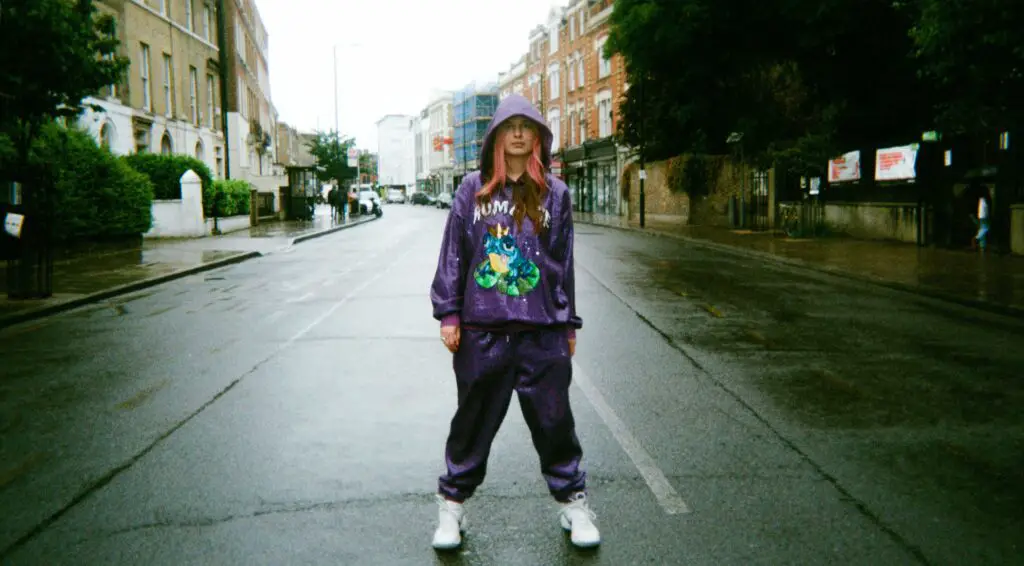
I THOUGHT I WAS GOING TO ARRIVE OFF THE PLANE AND UNIVERSAL RECORDS WOULD BE WAITING WITH A CONTRACT.
BABY QUEEN
Latham, making her first tentative steps in the music industry, felt overwhelmed by the ferocious social energy of her peers, and the palpable enormousness of her new home. “I just suddenly found myself so depressed,” she reflects. “I got caught up in the 24/7 pace and mania of the city, and I was really struggling. I got swept up into a crazy partying and drug scene. And I think that’s when you sort of hit rock bottom, when you realise that everything you wanted, you don’t want anymore.”
Growing up in the sleepy, conservative town of Durban, South Africa, Latham often felt like her surroundings suffocated her; finding little culture in the powdery deserts and modest neighbourhoods of her locale. When she was a teenager, Durban was the last place that she wanted to be. But when she heard Taylor Swift on the radio for the first time, a seed was planted. She found the embryonic elements of Baby Queen songs by singing along in an Americanised accent and gleefully imitating T. Swift’s melodies, and at the age of thirteen, began to carefully plot world domination. The first step? A one-way ticket to the Big Smoke.
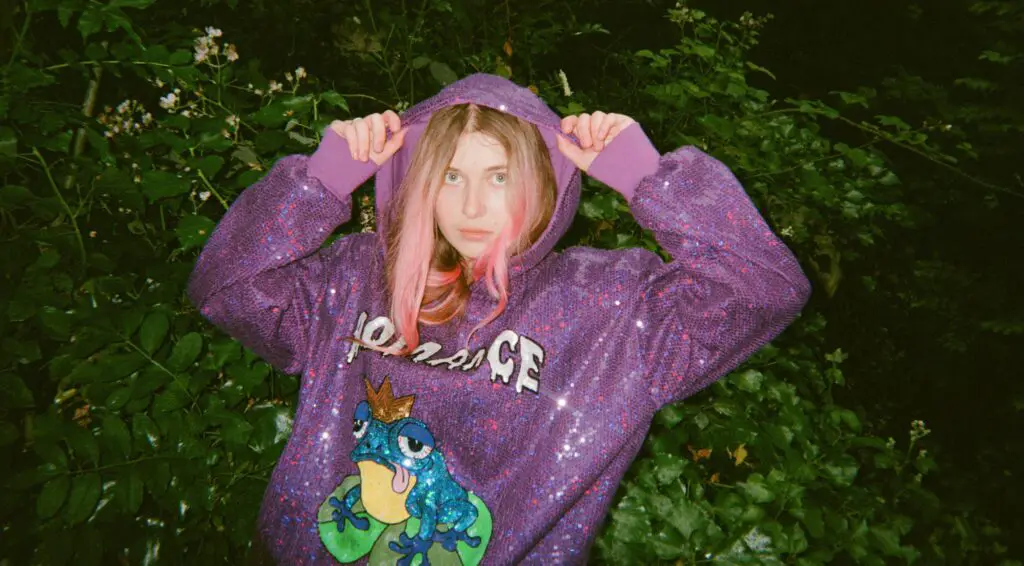
“I realised that when I moved to London, I began to understand that my identity in South Africa was very suppressed and boxed into something that I never felt like I was,” she says. “And the moment I moved over here, I dyed my hair black, I got loads of tattoos. I finally felt like I was becoming more comfortable in myself. I feel 100% in my heart and soul, despite the struggles I may have had when I first moved, that London is my home and it’s the place where I truly was able to work out who I am.”
“My life in South Africa feels like another life that I had,” she continues. “It was a different version of me, and I think that’s difficult. It feels like trying to come to terms with the identity you have now and what you were. Especially when you give yourself a different name.”
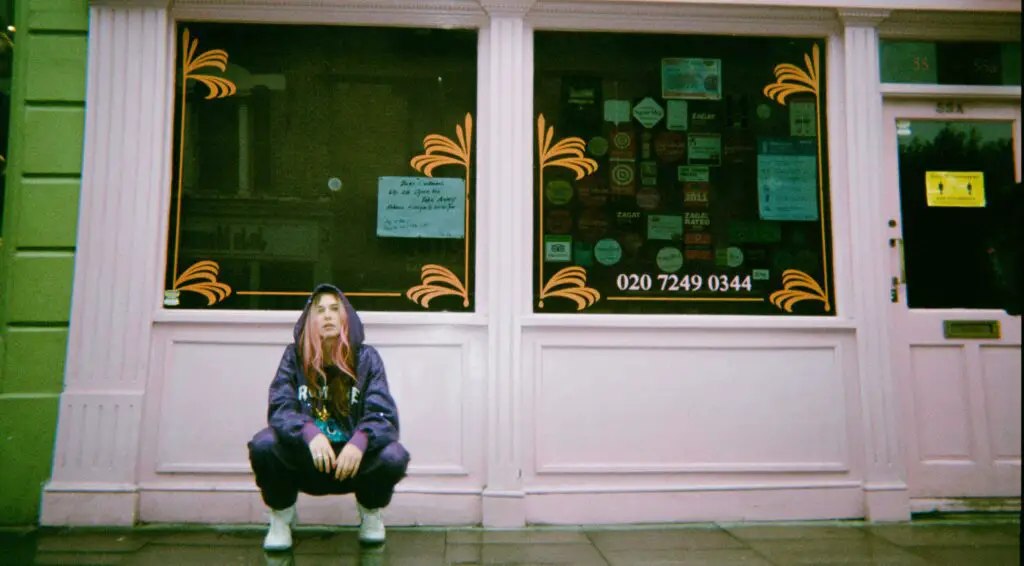
The conception of the Baby Queen moniker, then, was key to a process of growth and becoming, and still figuring things out, it provided Latham with the sense of direction she so desperately needed. “One day, I was writing a song about a breakup and I wrote this line that said: ‘I’m your little baby queen‘. It was just meant to be in a song,” she laughs. “And then I was like, that’s what I’m going to call myself! I had this moment of realisation where I felt like I was comfortable in my own skin. This name represents who I’ve always wanted to be.”
Baby Queen makes effervescent, high-octane pop full of transformation and discovery, mixing twinkling beats with sugary vocals to create hook-stuffed, earworm choruses, with two releases to her name as proof. For Latham, it’s important to write songs that reflect the world around her, all the while she excavates moments from her past. She details body dysmorphia, terrible breakups, internet culture, and above all else, the stigma of discussing mental health, a weighty subject that is most felt in her latest single, Buzzkill; “What doesn’t kill you makes it wish that it had”, she sings with a laidback drawl over a rough-edged, punchy electro-pop arrangement.
“I want to be so overly honest about what I’m feeling in my music,” she affirms. “I have experienced so much pain, yet so much happiness, but I always feel like if you can’t turn pain into something beautiful, then it’s just pain. It gives purpose to being able to write.
“I think in colours a lot, and while making this music under the Baby Queen name, I feel there’s definitely parameters to them to where I can go and the vocabulary I can use. If I’m writing a Baby Queen song, there’s quite strict rules, but Baby Queen is not a character. It’s like a side of myself that is very satirical, negative and cynical.”
Latham is candid and gutsy in her approach to songwriting, noting down phrases from passing conversations and detailing her days in diaristic form, a “cathartic” process that she describes as “lyric collecting”. She pointedly holds an overstuffed notebook of evidence to the camera, and elaborates, with a beaming smile. “I never feel any sort of reservations about being so honest in my work. Someone’s gonna listen to my music and think, ‘Wow, she’s fucked up!’, and I quite like the thought of that.”
SOMEONE’S GONNA LISTEN TO MY MUSIC AND THINK ‘WOW, SHE’S FUCKED UP! ‘ I QUITE LIKE THE THOUGHT OF THAT
BABY QUEEN
She also draws inspiration from the most familiar of sources: social media. Her buzzy debut track, ‘Internet Religion’, captures the juxtaposing wired energies and disenchantment felt by an artist finding their way online. “I sometimes feel like my entire worth as a human being is placed upon how many followers I have,” she says. “That’s what you continuously see across social media, this unattainable standard of a human being that you compare your complex, messy reality to. I used to constantly feel like I needed to portray myself in a certain way.”
But it’s this innate understanding of the virtual realm that makes the escapist aspects of her music so powerful: in both conversation and song, Latham is deeply ruminative and is adamant that social media has proven indispensable to not only shaping the identity of Baby Queen, but to reach an ever-burgeoning audience.
“It’s very clear to me that social media is a tool to connect with the people that are listening to music,” she says, earnestly. “And if I can leave somebody feeling less alone, as if their own self has been mirrored through my songs, then I think that’s the whole point of why I do this.”
